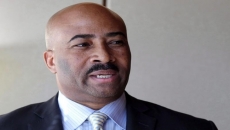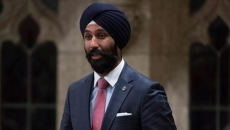The arrival of COVID-19 has taken the concept of telemedicine from a pipe dream to a fixture across Ontario, with many doctors expressing the hope that the change is here to stay long beyond the pandemic.
Patient advocates describe the shift as a double-edged sword, saying the increased health-care access that remote care can provide is often countered by drawbacks that place seniors, disabled Canadians and other marginalized communities at greater risk of harm.
Dr. Samantha Hill, president of the Ontario Medical Association and a practising cardiac surgeon, said the change came about abruptly as the medical profession hastened to adapt to a health-care landscape turned upside down by the novel coronavirus. But she said now that the transition is well underway, it seems unlikely that the system will revert back to pre-pandemic norms.
"I don't think they're going to be able to put this back in the barn," Hill said of governments, health-care providers and patients alike. "But there needs to be work done on the system and how we move forward to make sure that ... we're not creating a second tier of medicine."
Hill said Ontario's doctors had been pushing for wider access to telemedicine for years prior to the pandemic, often meeting with resistance from government officials of varying stripes.
The provincial health-care system was poorly equipped to grant patients access to web or telephone-based care, she said, noting the Ontario Health Insurance Program that compensates physicians did not allow doctors to be remunerated for most virtual consultations.
All that changed in March, she said, when widespread lockdown measures went into effect across the province to curb the spread of COVID-19. Under emergency orders enacted by the Progressive Conservative government, all but essential health care was paused and doctors began holding appointments remotely.
Hill said the government was forced to scramble to implement temporary billing codes to ensure doctors could be compensated for time spent on virtual consultations with patients.
Those codes remain in use, though data from the Ministry of Health suggests in-person visits have been on the rise since emergency measures were eased in June.
It said 52 per cent of all physician visits were taking place by phone or video when the new codes were introduced. Three months later, data showed 65 per cent of visits were occurring face-to-face.
Ministry spokeswoman Alexandra Hilkene would not comment on whether the new codes would be made permanent, but said the government would "continue to expand access to digital and virtual care options to improve patient experiences and convenience." Details would be revealed in a pending fall preparedness plan, she added.
Hill said doctors use their own discretion when deciding how best to see patients, noting that in-person visits are essential to diagnose certain conditions or to assess the well-being of some patients. Those at risk, she said, include people contending with domestic violence or patients with a range of intellectual or communication-related disabilities.
The College of Physicians and Surgeons of Ontario agreed, saying both remote and in-person visits have a place in today's medical environment.
"While virtual care is often an excellent option, there are other times that in order to provide appropriate care, a patient needs to be seen in person (e.g. physical exam, vaccinations, when you can't get adequate details through a virtual visit and/or you are concerned about the patient)," the College said in a statement. "It is also important doctors are mindful of marginalized populations and those that don't have access to technology."
Dr. Daniel Raza, a Toronto-based family physician and board chair of Canadian Doctors for Medicare, welcomed the acceleration of virtual care across most of the province.
But he said the process hasn't been without pitfalls, alleging some providers charge patients for remote care despite the fact that such services are now publicly covered. This loophole must close, he said, in order to ensure equitable medical care.
"Virtual care is here to stay, and that's a good thing," he said. "But it must be based on medical need, not ability to pay."
Patient advocates, too, highlighted both the pros and cons of the new normal.
Maryann Murray, a member of patient advocacy group Patients for Patient Safety Canada, conducted a small-scale national survey in mid-May to gauge Canadians' experiences with remote health care in the early days of the pandemic.
She said 90 per cent of respondents reported a positive experience, noting they appreciated the reduced exposure to infection disease, ease of access for those in remote regions, and the ability to receive timely, individualized advice from a known care provider.
"It should be part of the choices people have and providers have," Murray said of remote care, noting it could be of particular use for simpler matters such as prescription refills and side effects.
Susan Hagar, an Ottawa-based nurse and patient advocate, said doctors have also shown greater willingness to listen to their patients' words without the benefit of body language or other physical cues.
But she said the lack of such information can also leave physicians at a major disadvantage, saying diagnoses and treatment often depend on a broader spectrum of patient interactions than virtual consultations can provide.
Additional barriers exist, she said, both for patients who struggle to use virtual care tools or health-care providers trying to cope with the expense of offering such options securely.
"Telemedicine will have to improve in order to offer the quality that people need for this to be a good option," she said. "The fact that it's relatively new to people on both sides ... means that everybody's going to have to up their game."






